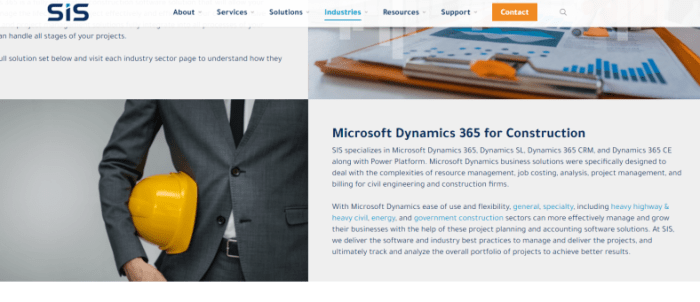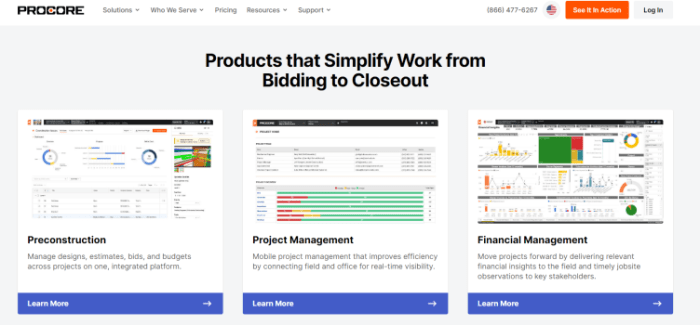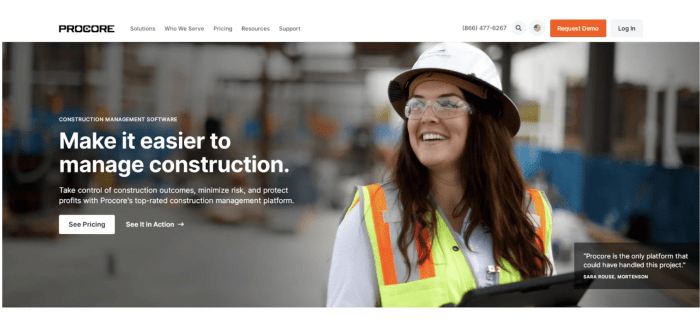The construction industry is notoriously complex, juggling multiple projects, clients, subcontractors, and materials simultaneously. Effective project management is crucial for success, and a robust Construction CRM (Customer Relationship Management) system can be the key to streamlining operations and boosting profitability. This comprehensive guide explores the best construction CRM software options available, helping you choose the perfect solution for your business needs.
We’ll delve into key features, pricing, and considerations to ensure you make an informed decision.
Understanding the Need for Construction CRM Software
Before diving into specific software, let’s understand why a construction CRM is essential for modern construction businesses. Traditional methods often involve scattered spreadsheets, emails, and sticky notes, leading to inefficiencies and potential errors. A dedicated CRM system centralizes all crucial information, offering several benefits:
- Improved Client Relationship Management: Track client interactions, project milestones, and communication history, fostering stronger client relationships and improving customer satisfaction.
- Enhanced Project Management: Streamline project workflows, track progress, manage deadlines, and allocate resources effectively.
- Better Collaboration: Facilitate seamless communication and collaboration among project teams, subcontractors, and clients.
- Increased Productivity: Automate repetitive tasks, such as lead generation, scheduling, and reporting, freeing up valuable time for strategic decision-making.
- Improved Reporting and Analytics: Gain valuable insights into project performance, profitability, and overall business health through comprehensive reporting and data analysis.
- Reduced Costs: Minimize errors, delays, and material waste through better planning and execution.
Key Features to Look for in Construction CRM Software: Best Construction Crm Software
Not all construction CRMs are created equal. When choosing the right software, consider these essential features:
Project Management Capabilities
- Task Management: Assign tasks, set deadlines, track progress, and monitor task completion.
- Timeline Management: Visualize project timelines, identify potential bottlenecks, and manage dependencies.
- Document Management: Store and share project documents securely, ensuring everyone has access to the latest information.
- Budget Tracking: Monitor project budgets, track expenses, and manage financial forecasts.
- Progress Reporting: Generate reports on project progress, costs, and timelines.
Client Relationship Management (CRM) Features
- Contact Management: Store and manage client contact information, communication history, and project details.
- Lead Management: Track leads, manage opportunities, and nurture prospects through the sales pipeline.
- Communication Tools: Integrate email, phone, and messaging features for seamless communication with clients and team members.
- Customer Support Ticketing: Manage client inquiries and support requests efficiently.
Subcontractor Management
- Subcontractor Database: Maintain a comprehensive database of subcontractors, including their contact information, qualifications, and performance history.
- Subcontractor Communication: Communicate effectively with subcontractors, assigning tasks, sharing documents, and tracking their progress.
- Payment Processing: Streamline subcontractor payments and manage invoices.
Other Important Features, Best construction crm software
- Reporting and Analytics: Generate custom reports to track key performance indicators (KPIs), identify areas for improvement, and make data-driven decisions.
- Mobile Accessibility: Access the CRM system from anywhere, anytime, using mobile devices.
- Integrations: Integrate with other essential business tools, such as accounting software, project management platforms, and email marketing services.
- Security: Ensure the security of sensitive client and project data with robust security features.
- Customization: Choose a CRM that can be customized to fit your specific business needs and workflows.
Top Construction CRM Software Options
Several excellent construction CRM software options are available, each with its strengths and weaknesses. Here are a few of the leading contenders:
(Note: This section would ideally include detailed reviews of specific software, including screenshots and comparisons. Due to the length constraints, I will only list some popular options.)
* CoConstruct: Known for its project management features and client communication tools.
Buildertrend
A popular choice for larger construction companies, offering robust project management and reporting capabilities.
Procore
A comprehensive platform suitable for various construction projects, from residential to commercial.
PlanGrid
Focuses on field collaboration and document management.
Sage 300 Construction and Real Estate
A powerful ERP system that includes CRM functionality, ideal for larger companies.
Choosing the Right Construction CRM for Your Business
Selecting the best construction CRM depends on several factors:
- Size of your business: Smaller businesses may need a simpler solution, while larger companies may require a more comprehensive platform.
- Type of projects: The software should align with the complexity and scale of your projects.
- Budget: Consider the pricing model (subscription-based, one-time purchase) and your budget.
- Technical expertise: Choose a system that is easy to use and requires minimal training.
- Integration needs: Ensure the CRM integrates with your existing business tools.
Frequently Asked Questions (FAQs)
- Q: What is the average cost of construction CRM software? A: The cost varies greatly depending on the features, number of users, and vendor. Expect to pay anywhere from a few hundred dollars per month to several thousand dollars per year.
- Q: How long does it take to implement a construction CRM? A: Implementation time varies, but you can expect it to take several weeks to a few months, depending on the complexity of the system and your business processes.
- Q: Can a construction CRM integrate with my accounting software? A: Many construction CRMs offer integrations with popular accounting software packages, such as QuickBooks and Xero. Check the vendor’s website for compatibility information.
- Q: What are the benefits of using a cloud-based construction CRM? A: Cloud-based systems offer accessibility from anywhere, automatic updates, and reduced IT infrastructure costs.
- Q: How do I choose the right CRM for my team? A: Involve your team in the selection process to ensure the software meets their needs and workflows. Consider conducting demos and trials before making a final decision.
References
(This section would contain links to reputable sources such as software vendor websites, industry articles, and comparison sites. Due to the limitations, I cannot provide specific links here.)

Source: pttrns.com
Call to Action
Ready to streamline your construction business and boost profitability? Explore the construction CRM options discussed in this guide and choose the perfect solution to optimize your operations. Start your free trial or request a demo today!
FAQ Summary
What are the key features to look for in construction CRM software?

Source: pttrns.com
Key features include project management tools, contact management, lead tracking, reporting and analytics, document management, and mobile accessibility.
How much does construction CRM software typically cost?

Source: pipelinecrm.com
Pricing varies greatly depending on the features, number of users, and vendor. Expect a range from affordable monthly subscriptions to more substantial enterprise-level solutions.
Can construction CRM software integrate with other business tools?
Many construction CRMs offer integrations with accounting software, project management platforms, and other business applications to streamline workflows.
What is the typical implementation timeline for a construction CRM?
Implementation timelines vary, but generally range from a few weeks to several months, depending on the complexity of the system and the company’s specific needs.
How can I ensure my data is secure in a construction CRM?
Choose a reputable vendor with robust security measures, including data encryption, access controls, and regular security audits. Review their security policies and certifications.
